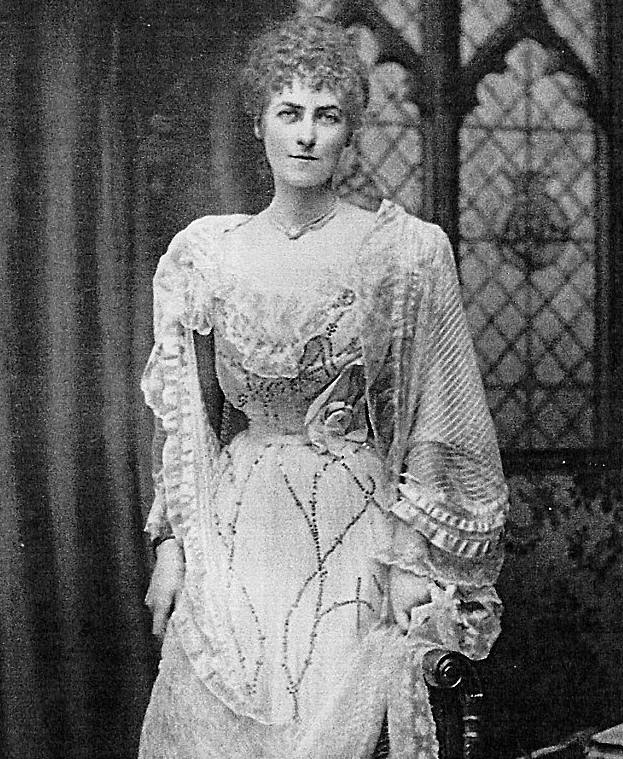George Douglas-Pennant, 2nd Baron Penryn
George Sholto Gordon Douglas-Pennant, 2nd Baron Penryn (1836-1907), was
the son of Colonel Edward Gordon Douglas (1800-1886), brother of the
17th
earl of Morton, who, through his wife, Juliana, elder daughter and
coheir of George Hay Dawkins-Pennant, of Penrhyn Castle, Carnarvon, had
large estates in Wales and elsewhere, and was created Baron Penrhyn in
1866. Dawkins had inherited the estates [rom Richard Penryn, who was
created Baron Penryn in 1763, the title becoming extinct on his death in
1808.
In 1860 he became a major commanding the Caernarvonshire
Rifle Volunteers, which was affiliated in 1881 to the 4th (Militia)
Battalion, Royal Welch Fusiliers; he later became its honorary colonel.
George Douglas-Pennant was conservative M.P. for Carnarvonshire in
1866-1868 and 1874-1880, and succeeded his father in the title in 1886. A
keen sportsman, a benevolent landlord, a kind and considerate employer,
Lord Penrhyn came of a proud race, and was himself of an imperious
disposition.
He came prominently before the public in 1897 and subsequent
years in connection with the famous strike at his Welsh slate-quarries.
During his father's lifetime the management of the Penrhyn quarry had been
left practically to an elective committee of the operatives, and it was on
the verge of bankruptcy when in 1885 he took matters in hand; he abolished
the committee, and with the help of Mr E. A. Young, whom he brought in
from London as manager, he so reorganized the business that this
slate-quarry yielded a profit of something like 150,000 a year. The new
men and new methods were, however, not to the taste of the trade unionist
leaders of the quarrymen, and in 1897, when the " new unionism"
was rampant in labour questions throughout England, a strike was
deliberately fomented. Lord Penrhyn refused to recognize the union or its
officials, though he was willing to consider any grievances from
individual quarrymen, and a protracted struggle ensued, in which his
determination was invincible. He became the object of the bitterest
political hostility, and trade unionism exerted itself to the utmost, but
vainly, to bring about some form of government intervention. Penrhyn
strikers perambulated the country, singing and collecting contributions to
their funds. But in spite of every pressure Lord Penrhyn insisted on being
master of his own property, and by degrees the agitation collapsed.
His death on the ?l0th of March 1907 evoked general and genuine
regret.
The 1st Baron Penrhyn, whose family made much of their money from
the slave trade, left £761,880 in his will in 1886 to his son Lord
George Sholto Gordon Douglas Pennant.
The vast fortune left
by Baron Penrhyn, who owned Penrhyn Castle near Bangor, was the
equivalent of £45,628,993.20 today.
The family used the vast
sums made from the slave trade to fund their industrial ventures in
Wales.
Lord Penrhyn was twice married, and had fifteen surviving children. He
was succeeded in the title by his eldest son,
Edward Sholto (b. 1864), who
was Unionist M.P. for South Northamptonshire from 1895 to 1900.

The Hon Alice Douglas-Pennant, known locally as 'Lady Alice',
Lord penryn's daughter, is said to have fallen in love with a
gardener and was banished to the castle tower by her father,
wealthy industrialist and Conservative MP Lord Penrhyn. The
romantic message 'essere amato amando' ('To be loved while
loving') was scratched onto a window pane has become a hit with
visitors to the castle, which is now owned by the National Trust
and open to the public.
See also:
The Douglas-Pennant Family
Any contributions will be
gratefully accepted
Errors and Omissions
|
|
The Forum
|
|
What's new?
|
|
We are looking for your help to improve the accuracy of The Douglas
Archives.
If you spot errors, or omissions, then
please do let us know
Contributions
Many articles are stubs which would benefit from re-writing.
Can you help?
Copyright
You are not authorized to add this page or any images from this page
to Ancestry.com (or its subsidiaries) or other fee-paying sites
without our express permission and then, if given, only by including
our copyright and a URL link to the web site.
|
|
If you have met a brick wall
with your research, then posting a notice in the Douglas Archives
Forum may be the answer. Or, it may help you find the answer!
You may also be able to help others answer their queries.
Visit the
Douglas Archives Forum.
2 Minute Survey
To provide feedback on the website, please take a couple of
minutes to complete our
survey.
|
|
We try to keep everyone up to date with new entries, via our
What's New section on the
home page.
We also use
the Community
Network to keep researchers abreast of developments in the
Douglas Archives.
Help with costs
Maintaining the three sections of the site has its costs. Any
contribution the defray them is very welcome
Donate
Newsletter
If you would like to receive a very occasional newsletter -
Sign up!
Temporarily withdrawn.
|
|
|
|
|
|
|
|
|


